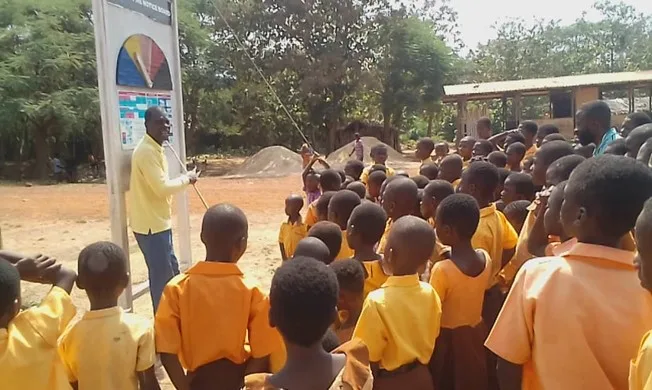
Paul Ontoaneyin, Form Ghana's Environmental, Social and Governance Manager, writes:
The starting point for safe living and work environments is recognising that everyone is responsible for their own safety and that of their family, neighbours and work colleagues.
Form Ghana believes a robust health and safety culture is essential for regulatory compliance and maintaining trust with our stakeholders. By prioritising safety, we ensure that our operations do not pose risks to the fringe communities while educating them and establishing understanding and clear lines of communication.
The company's Integrated Community Fire Management Project (ICFMP) is an excellent example of safety in practice.
Educated and informed communities are safe communities. Form Ghana's approach to integrated fire management is based on international best practices. The safety of firefighters and communities cannot be compromised.
Ours is a holistic focus. For over ten years, we have planned, managed and restored sustainable ecosystems by considering the impacts of fire from the perspectives of our staff, neighbouring communities, resources, and other private and public stakeholders.
Safety begins with community liaison. Mutual assistance agreements are signed with community leaders to form the Fire Volunteer Squads (FVS) and clarify roles, responsibilities, early warning systems, and incident command procedures.
Each community selects a local fire officer and fire squad leaders to manage the FVS at the community level. Speedy and precise communication channels, clear responsibilities, training and collaboration are vital before and during fire season. Form Ghana provides local fire officers with smartphones and call credits during fire season and maintains contact every two hours.
The incident command centre at the Berekum Plantation Office is the hub of the ICFMP. It relies on well-trained Fire Bosses and manual and digital early warning systems, including the Fire Hawk network of cameras on towers strategically located in the plantation.
Last year, 154 squad members were chosen from the nine participating fringe communities. They received personal protective equipment, firefighting tools and training in the Fire Danger Index (FDI), fire suppression and planned burning operations.
Do you want to join our team?